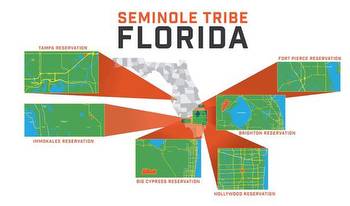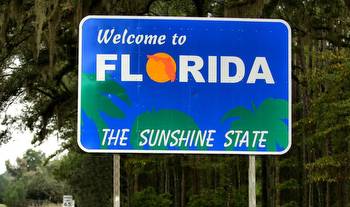Looking north: is Florida’s gambling law causing it to miss out?
Looking north: is Florida’s gambling law causing it to miss out?
When arguments in favor of liberalizing online gambling laws are put forward, they’re often made on the grounds that it’s up to the individual gambler how to spend their money. This is a fair point: after all, in a liberal democracy, it’s only right that people can spend the cash they earn in the way they see fit. But there’s much more to the question of online gambling liberalization than just this.
It’s also the case that permissive gambling rules can help a state or local government enhance its tax revenues and job vacancy levels significantly by opening up its gambling laws. This article will go into these benefits in more detail, and look at how some other parts of North America have managed to secure big gains in this regard for their residents.
Current status
Before exploring what the benefits of liberalization might look like, it’s worth exploring the current status of the law in the state. At present, Florida places significant restrictions on online and even some in-person gambling practices, despite the fact that the state government was given sweeping powers to set its own gambling laws following the repeal of the Professional and Amateur Sports Protection Act, an action that struck down federal prohibitions.
One of the complications for the Florida state government is the influence of the Seminole Tribe, which controls a lot of the gambling provision in the state. Pushing through reform might run the risk of jeopardizing a key income stream that the Seminole Tribe values, meaning that there’s likely to continue to be significant resistance.
Tax revenues
But there’s plenty that a smart state government can achieve if it liberalizes gambling. One benefit is enhanced tax revenues: when allowing a wider range of gambling companies to operate within a jurisdiction, it’s possible to levy a certain amount in tax on their operations and assign that to the state budget.
Other states that have pursued a liberalizing approach to online gambling have enjoyed a bump in tax revenues in the longer term. One prediction last year, for example, suggested that sports betting alone could lead to $1bn taxable gross gaming revenue in the states that had legalized it at that point. It’s often the case that voters approve (either directly or via a manifesto) proposals for liberalization of gambling laws in their state, and politicians can earmark the enhanced tax revenues for a specific project or service – such as education. This means that there’s a political model for Florida to follow if it did want to go down this road.
Job opportunities
Another benefit for states looking to pursue this option is that it can create additional jobs. Opening a physical casino creates lots of jobs: some of these are on the gaming floor, like croupiers or dealers, while others are in the back office. Given that casinos aren’t the sort of institution that tends to displace other institutions or forms of work, the establishment of one in a town can often mean an overall net gain – and, indeed, can have a magnet effect if other leisure institutions such as bars and restaurants decide to open up in the area.
iGaming: a case study
These benefits don’t just extend to in-person gambling locations, though. iGaming, which refers to online and mobile gaming (and in a casino context, online or mobile gambling) can also enhance tax revenues – and given that they can be set up fast, the time the state has to wait to see revenue come in is short. They also create well-paid jobs in the knowledge sector – for example, opportunities for coders – which in turn increases income tax revenue.
In Canada in particular, iGaming has proved very popular. One study found that the size of the gambling market in the country could reach $4.6bn by 2030 – an online casino for the French Canadian market has already been doing especially well in areas such as Montreal.
In short, Florida looks set to benefit massively if it follows in the footsteps of states further north – and even Canada – if it decides to open up its gambling laws. Not only could this move help enhance tax revenues and potentially support residents and taxpayers with the provision of further services, it could also help enhance job opportunities – which would be a welcome step as the economy begins to recover from the pandemic. Whether or not the state government will take this approach, though, remains to be seen.




































